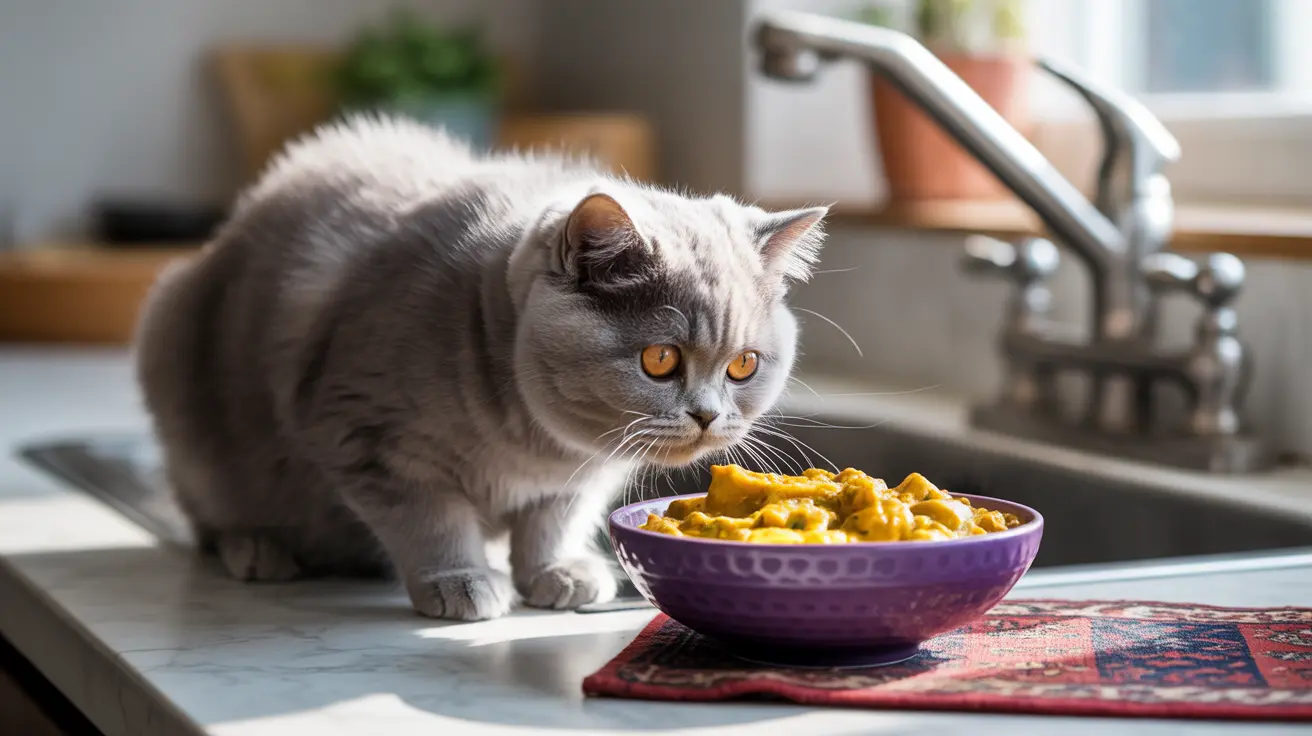If you're a cat owner who enjoys spicy food, you might wonder about sharing your favorite curry dishes with your feline friend. However, before offering your cat a taste of curry, it's crucial to understand the potential risks and dangers associated with this flavorful dish.
Curry poses significant health risks to cats due to its ingredients, many of which can be toxic to our feline companions. Let's explore why curry should be kept away from cats and what to do if your pet accidentally consumes this spicy dish.
Why Curry is Dangerous for Cats
The primary concern with curry and cats stems from its common ingredients, many of which can cause severe health problems in felines. Unlike humans, cats have different digestive systems and metabolic processes that make them particularly vulnerable to certain food components.
Toxic Ingredients in Curry
Several standard curry ingredients can be lethal to cats:
- Onions and garlic (extremely toxic, causing life-threatening anemia)
- Chili peppers (causes severe digestive distress)
- Various spices (can irritate digestive system)
- Salt (potentially leads to sodium poisoning)
- Cream or coconut milk (causes digestive issues)
Health Risks and Symptoms
When cats consume curry, they may experience various adverse reactions ranging from mild to severe:
Immediate Symptoms
- Vomiting and diarrhea
- Excessive drooling
- Abdominal pain
- Loss of appetite
- Lethargy
Long-term Complications
- Heinz body anemia (from onion/garlic exposure)
- Pancreatitis
- Kidney problems
- Gastrointestinal inflammation
Emergency Response to Curry Ingestion
If your cat has eaten curry, take these immediate steps:
- Remove any remaining curry
- Monitor your cat closely
- Contact your veterinarian immediately
- Document symptoms and timing
- Don't induce vomiting without veterinary guidance
Safe Alternatives to Curry
Instead of curry, consider these cat-safe treats:
- Plain, cooked chicken or turkey
- Small pieces of cooked fish
- Commercial cat treats
- Veterinarian-approved meat-based snacks
Preventing Curry-Related Incidents
Take these precautions to protect your cat:
- Store leftovers in sealed containers
- Clean spills immediately
- Keep cats away during cooking
- Educate family members about food safety
- Maintain a strict "no human food" policy
Frequently Asked Questions
Can cats eat curry safely, or is it toxic for them?
No, cats cannot safely eat curry. The dish contains multiple ingredients that are toxic to cats, including onions, garlic, and various spices that can cause severe health problems.
What ingredients in curry are harmful to cats, and how do they affect them?
The most harmful ingredients are onions and garlic (causing anemia), chili peppers (causing digestive distress), and various spices that can irritate the digestive system. Even small amounts of these ingredients can be dangerous.
What should I do if my cat accidentally eats curry?
Contact your veterinarian immediately. Monitor your cat for symptoms like vomiting, diarrhea, or lethargy. Don't attempt home remedies without professional guidance.
Are there any safe or "kitty-friendly" versions of curry for cats?
No, there are no safe versions of curry for cats. Cats are obligate carnivores and don't need spiced foods. Stick to plain, cooked meats or commercial cat food for treats.
Why are cats especially sensitive to foods like onion and garlic, which are often found in curry?
Cats lack certain enzymes needed to process these ingredients safely. Their bodies are particularly sensitive to compounds in onions and garlic that can damage red blood cells and cause severe anemia.
Remember, while curry might be a delicious treat for humans, it's best to keep it away from your feline friends. Instead, focus on providing them with a balanced, species-appropriate diet that meets their nutritional needs safely.






